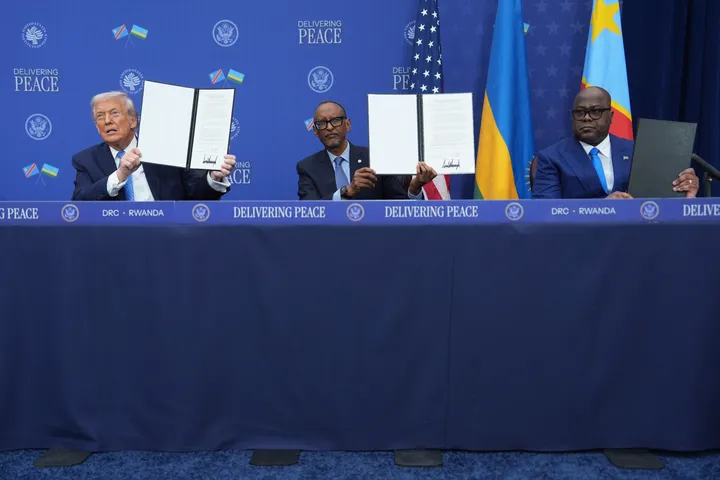By Brian Okoth
The price of petrol in Kenya for the November 15-December 14, 2023 period remains unchanged, while the prices of diesel and kerosene have reduced by Ksh2.00 each ($0.013) for a litre of the commodities.
Kenya's Energy and Petroleum Regulatory Authority (EPRA) announced on Tuesday that the average landed cost of petrol increased by 2.81%, while diesel went up by 3.28%. Kerosene, on the other hand, increased by 6.31%.
"In order to cushion consumers from the spike in pump prices as a consequence of the increased landed costs, the government has opted to stabilise pump prices for the November-December 2023 pricing cycle," EPRA said.
"The National Treasury has identified resources within the current resource envelope to compensate oil marketing companies," EPRA added.
Price guidelines
Kenya imports all its petroleum products in refined form, EPRA said.
Following the latest update, a litre of petrol in the port city of Mombasa, where fuel lands upon shipping, remains at Ksh214.30 ($1.41). Diesel will retail at Ksh200.41 ($1.32), while kerosene will go for Ksh199.99 ($1.32).
In the capital Nairobi, a litre of petrol under the new pump price guidelines is Ksh217.36 ($1.47), diesel Ksh203.47 ($1.34) and kerosene Ksh203.06 ($1.34).
The fuel prices in Nairobi are almost identical to the charges in Kenya's third city Kisumu, fourth city Nakuru, and a major town in Rift Valley, Eldoret.
Mandera, a county located near the Kenya-Somalia border and is 1,025 kilometres northeast of the capital Nairobi, has the highest fuel prices under the new review by EPRA, with a litre of petrol going for Ksh231.36 ($1.52), diesel Ksh217.47 ($1.43) and kerosene Ksh217.06 ($1.43).
Relief for Kenyans
The fuel prices in Kenya first crossed the Ksh200 ($1.32) mark in the September 14, 2023 review.
The now-stagnated prices pose a relief for Kenyans, who were fearing that the charges could spike after Energy Minister Davis Chirchir said earlier November that the Israel-Hamas conflict could push up the cost of fuel internationally.
























